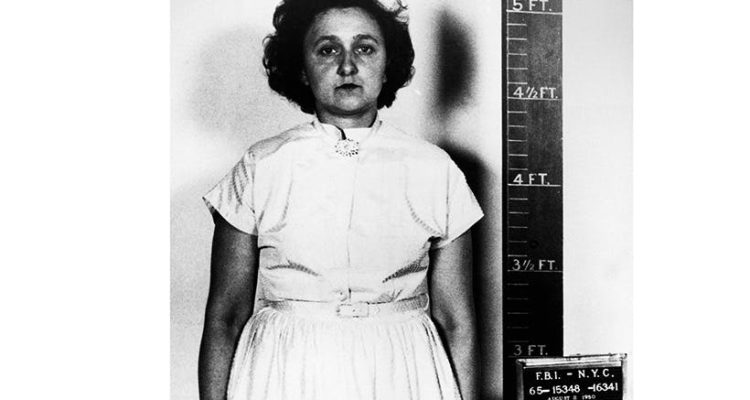Ethel Rosenberg was an exceptional woman. Born with a painful curvature of the spine to a poor family of Jewish immigrants and a mother who never loved her, she was determined to make her life matter. A talented singer, she won a place at New York’s prestigious Schola Cantorum and performed at Carnegie Hall. Having found clerical work, she helped organise strike action and then won a court vindication. Seeing the rise of fascism, she came to embrace the concept of communism, and when war arrived she campaigned for America’s entry.
Ethel’s exceptionalism did her no favours, however, in paranoid post-war America. Although she focused on her children, she was still far too close to her husband’s work. Already seen as ‘peculiar’, she was widely misjudged and easy to misrepresent. Aged just 37, in 1953 she said farewell to her two young sons and became the first woman in American history to be executed for a crime other than murder.
The Rosenberg case made international headlines in its day and has since inspired numerous novels, plays, histories and biographies. Anne Sebba’s riveting reappraisal not only includes previously unseen letters and testimony but also manages to extract Ethel from her marriage. Usually the lives and actions of ‘the Rosenbergs’ are presented as inextricably linked — even their Wikipedia entry is combined. Furthermore, this important and compelling book raises resonant issues around what happens when collective fear leads to hysteria and justice is wilfully ignored.
Read the article by Clare Mulley in The Spectator.

